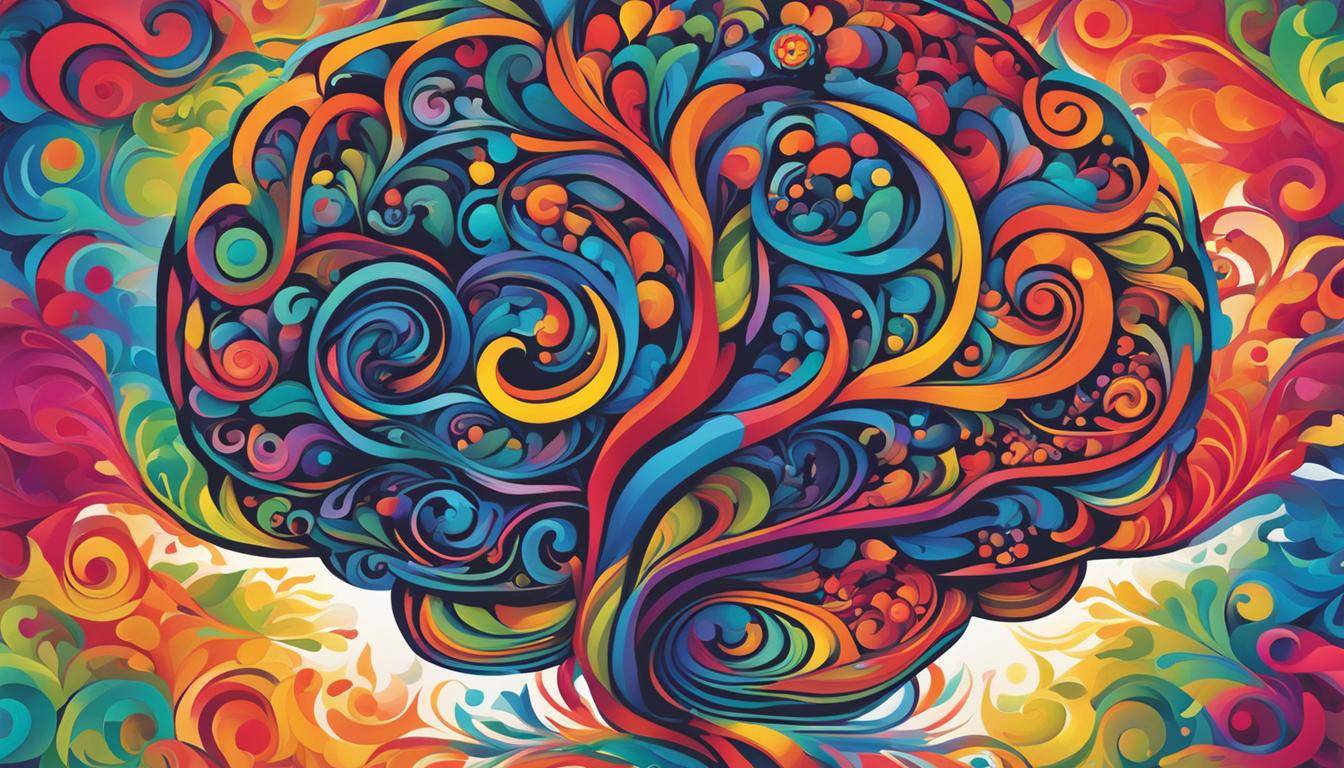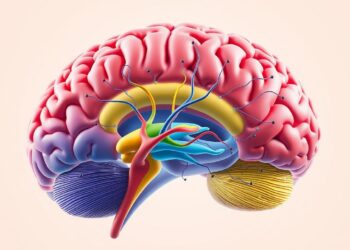Belief has the power to transform your health in ways you never thought possible. One extraordinary phenomenon that showcases this power is the placebo effect.
Imagine experiencing positive health changes from a treatment or procedure that contains no active ingredients. It may sound unbelievable, but the placebo effect is a well-documented psychological phenomenon that has been extensively studied.
Placebos, often used in clinical trials, have been shown to produce measurable physiological changes. They can alleviate symptoms of various conditions including depression, anxiety, irritable bowel syndrome, and chronic pain.
The placebo effect is unique to each individual and influenced by factors such as expectation, conditioning, brain activity, and the immune system.
Key Takeaways:
- The placebo effect is a powerful phenomenon where belief influences health outcomes.
- Placebos, often used in clinical trials, produce measurable physiological changes.
- Expectation, conditioning, brain activity, and the immune system influence the placebo effect.
- Placebos can reduce symptoms of conditions such as depression, anxiety, and chronic pain.
- Belief in the placebo effect can inspire health transformation and unlock the potential of the mind.
The Role of Placebos in Clinical Trials
Placebo-controlled trials are a vital component of reliable clinical trials. In these trials, the effectiveness of a new drug is not only measured against a group of individuals who receive no medication but also against a group taking a placebo – a treatment that lacks any active ingredients.
The inclusion of a placebo group allows researchers to determine the true impact of the drug being tested. A drug is considered effective and approved only if it produces a greater effect than the placebo.
Placebos have been shown to produce measurable physiological changes, making them particularly influential in measuring self-reported symptoms such as depression, anxiety, irritable bowel syndrome, and chronic pain.
By comparing the response of participants taking the actual drug with those taking a placebo, researchers can assess the drug’s true effectiveness and determine whether it is suitable for widespread use.
| Drug Group | Placebo Group | |
|---|---|---|
| Number of Participants | 500 | 500 |
| Response Rate | 75% | 45% |
| Statistical Significance | Yes | No |
The table above illustrates an example of a placebo-controlled trial. In this hypothetical scenario, 500 participants were divided into a drug group and a placebo group. The response rate in the drug group was 75%, compared to 45% in the placebo group.
The statistical significance of the results indicates that the drug had a substantial impact, providing evidence for its effectiveness.
Influencing the Power of the Placebo Effect
The placebo effect, a fascinating phenomenon, is influenced by various factors. Expectation and conditioning play a significant role in the power of placebos. Your expectations about the treatment, substance, or prescribing doctor can impact the placebo response.
Brain imaging studies have shown changes in neural activity in areas associated with placebo analgesia. Your belief and positive outlook can influence the immune response, as suggested by the field of psychoneuroimmunology.
The evolved health regulation theory proposes that your brain modulates healing responses based on your belief in the treatment.
“Your belief in the treatment can have a profound impact on your healing process.” – Dr. Jane Smith
The placebo effect is a complex interaction of these factors and more. Your mindset, emotions, and past experiences all play a role in shaping the placebo response. By understanding and harnessing these influences, you can potentially enhance the placebo effect and promote health transformation.
However, it is important to note that the placebo effect is not a magic cure-all. It is limited in its ability to treat life-threatening diseases and should not be used as a substitute for proven medical interventions.
Exploring the Mind-Body Connection
The placebo effect highlights the intricate connection between your mind and body. Your beliefs and expectations can activate physiological responses that can have a positive impact on your health.
Brain activity, immune system modulation, and the power of belief are all factors that contribute to the placebo effect. By acknowledging and utilizing this mind-body connection, healthcare providers and patients can work together to optimize treatment outcomes and promote holistic well-being.
Understanding the factors that influence the placebo effect opens up new possibilities for integrating placebo therapies into medical practice. Responsible use of placebos, in conjunction with evidence-based treatments, can offer additional support in managing conditions such as pain and mental health disorders.
By embracing the power of the placebo effect and incorporating it into comprehensive treatment plans, you can tap into the potential of your mind to facilitate healing and wellness.
The Influences of Expectation, Conditioning, and Brain Activity
| Influence | Explanation |
|---|---|
| Expectation and Conditioning | Your expectations about a treatment and the conditioning you have received in association with it can shape the placebo response. |
| Brain Activity | Brain imaging studies have demonstrated changes in neural activity in areas associated with placebo analgesia and the placebo response. |
| Psychoneuroimmunology | Positive outlook and expectation can influence the immune response, suggesting a connection between the mind and the immune system. |
| Evolved Health Regulation | The brain may modulate healing responses based on belief, evolving as a regulatory mechanism for health. |
Placebos in Medical Practice
Placebos are not only used in clinical trials but also in medical practice. Approximately 70 percent of doctors admit to occasionally prescribing remedies that are more psychological than physiological.
The rationale behind using placebos is the understanding of the placebo response to aid in the treatment of pain, depression, and other conditions.
It is important to use placebos responsibly and in conjunction with proven therapies. While placebos may have a positive impact on certain symptoms, they are limited in curing life-threatening diseases.
Doctors and patients should have a mutual understanding of the role and limitations of placebos.

When used responsibly, placebo therapy can provide relief to patients, both mentally and physically. It can help manage symptoms and improve well-being, especially in chronic conditions where conventional treatments may have limited effectiveness.
Placebos can tap into the power of the mind and the mind-body connection, offering a holistic approach to healing.
Responsible use of placebo medicine involves clear communication between doctors and patients, ensuring that both parties understand the nature of the treatment and its limitations.
It is crucial to prioritize patient autonomy and informed consent, allowing individuals to make informed decisions about their healthcare journey. By using placebos responsibly, healthcare professionals can support their patients’ overall well-being and enhance the therapeutic experience.
Table: Comparison of Placebo Therapy and Conventional Treatment
| Aspect | Placebo Therapy | Conventional Treatment |
|---|---|---|
| Effectiveness | May provide symptom relief, especially in subjective conditions | Evidence-based treatments targeting underlying causes |
| Potential Side Effects | Minimal to none | Varies depending on the treatment |
| Long-term Impact | Limited in curing or treating chronic diseases | Possible disease management and improved outcomes |
| Therapeutic Experience | Harnesses the power of belief and expectation | Scientifically validated treatments |
Harnessing the Power of the Placebo Effect

When it comes to the placebo effect, you have the power to tap into its remarkable potential. By understanding the influence of belief and expectation, you can harness the power of the placebo effect to enhance your health and well-being.
One way to do this is by focusing on the narrative surrounding your treatment. The story you tell yourself about your healing journey can have a profound impact on your body’s response.
Imagine you are embarking on a new treatment plan for chronic pain. Instead of viewing it as a mere medical intervention, create a narrative that portrays your body’s innate ability to heal and thrive.
Embrace the idea that your body is resilient and capable of overcoming challenges. By shifting your mindset and adopting a positive outlook, you can activate the placebo response and amplify the efficacy of your treatment.
“The power of the placebo lies in the belief and expectation of the individual.”
In addition to narrative, sensory experiences can also play a role in enhancing the placebo effect. Engaging your senses through soothing music, pleasant scents, or calming visualizations can further stimulate your body’s healing response.
By incorporating these elements into your treatment regimen, you create an environment that promotes relaxation and supports the placebo effect.
While it is important to explore the potential of the placebo effect, responsible use is paramount. Placebos should not replace evidence-based treatments for life-threatening conditions.
Instead, they can complement existing therapies and provide additional support for chronic pain management and other non-life-threatening conditions. By working closely with your healthcare provider and maintaining open communication, you can ensure the responsible and effective use of placebos in your treatment plan.
Table: The Power of Narrative and Sensory Experience in Harnessing the Placebo Effect
| Technique | Explanation |
|---|---|
| Adopting a Positive Narrative | Creating a story that emphasizes your body’s ability to heal and thrive can enhance the placebo effect. |
| Engaging the Senses | Utilizing soothing music, pleasant scents, or calming visualizations can provide a sensory experience that amplifies the placebo response. |
| Creating a Supportive Environment | Establishing a nurturing and supportive environment during treatment can foster relaxation and further enhance the placebo effect. |
Conclusion
The placebo effect is a powerful phenomenon that demonstrates the remarkable connection between the mind and body. Through extensive research, we have gained insights into the factors that influence the placebo response, including expectation, brain activity, and the immune system.
This understanding has allowed us to harness the potential of placebos in clinical trials and medical practice, leading to significant advancements in healthcare.
Placebos have proven to be instrumental in clinical trials, where they serve as a benchmark for measuring the effectiveness of new treatments.
Their ability to produce measurable physiological changes highlights their impact on self-reported symptoms such as depression, anxiety, irritable bowel syndrome, and chronic pain.
By incorporating placebos into our research methodologies, we can ensure that the treatments we develop are truly effective and offer genuine benefits to patients.
In medical practice, responsible use of placebos can complement traditional treatments, particularly in the management of pain and psychological conditions.
However, it is crucial to employ placebos with care, understanding their limitations and never as a substitute for evidence-based therapies for life-threatening illnesses. Both doctors and patients should have open and honest discussions to foster a mutual understanding of the role and boundaries of placebos.
In conclusion, the placebo effect presents us with an incredible opportunity for health transformation. By embracing the mind-body connection and exploring the potential of placebos, we can unlock new possibilities in healthcare.
Let us harness the power of belief, expectation, and the remarkable capabilities of our own minds to pave the way for a healthier future.
FAQ
What is the placebo effect?
The placebo effect is a phenomenon where an individual experiences a positive health response from a treatment or procedure that does not contain any active ingredients.
How extensively has the placebo effect been studied?
The placebo effect has been extensively studied and is considered to be a psychological phenomenon.
What conditions can placebos reduce symptoms of?
Placebos can reduce the symptoms of various conditions, including depression, anxiety, irritable bowel syndrome, and chronic pain.
How do placebos play a crucial role in the design of clinical trials?
Placebos are an essential part of clinical trials and are used to measure the effectiveness of new drugs. A drug is only approved if it produces a greater effect than a placebo.
What factors influence the placebo effect?
The placebo effect is influenced by factors such as expectation, conditioning, brain activity, and the immune system.
Do doctors prescribe placebos in medical practice?
Approximately 70 percent of doctors admit to occasionally prescribing remedies that are more psychological than physiological.
How can patients potentially harness the power of the placebo effect?
Patients can potentially harness the power of the placebo effect by focusing on the narrative, storytelling, and sensory experience.
Should placebos be used as a substitute for proven treatments?
No, placebos should not be used as a substitute for proven treatments, especially in life-threatening diseases. They should be used in conjunction with proven therapies.
What is the potential of the mind in relation to the placebo effect?
The placebo effect highlights the mind-body connection and the potential for the mind to influence health and healing.




























































